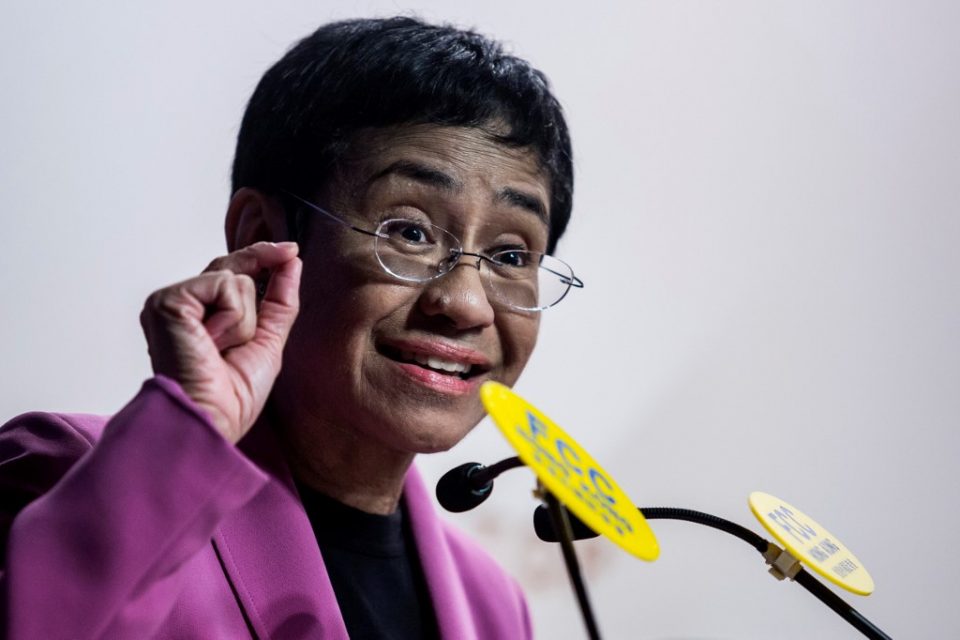
(Eagle News) — Rappler CEO Maria Ressa’s cyber libel trial opened Tuesday, July 23, in a case which stemmed from a 2012 article that claimed that a wealthy businessman had shady deals linked to illegal drugs and human trafficking even if there was no evidence that pointed to this.
The cyber libel case arose out of a story published by Rappler and written by former researcher and writer Reynaldo Santos in May 2012, and updated on February 19, 2014.
In the article, businessman William Keng was portrayed as being involved in allegedly “shady deals” and identified him as the owner of a black vehicle that was used by the late former Supreme Court chief justice Renato Corona during his impeachment hearings in 2012. Keng had denied that he was the owner of the vehicle featured in the article, and categorically said that he had “never been involved in any criminal case.”
Ressa and Santos are both out on bail.
During the hearing on Tuesday, the Department of Justice presented two witnesses that testified that they were able to access and read online the alleged defamatory article first published on May 29, 2012.
The prosecution witnesses were bank manager Marcelino Malonzo and National Bureau of Investigation (NBI) forensics chief Cristopher Paz.
-Ressa: “I won’t be intimidated”-
Rappler CEO Ressa did not attend the hearing but gave an interview where she insisted the libel case against her was a case against press freedom, and a violation of her rights as a private person.
“The government hopes to intimidate us by syphoning both my personal time, our resources,” Ressa, who was not in court, told international news wire, Agence France Presse.
Ressa who was named “Time Person of the Year” in 2018 claimed she won’t be intimidated into silence.
“I won’t be intimidated. We continue to do our jobs. The mission of journalism has never been as important as it is today in the Philippines,” she said.
Ressa, 55, sees the cases filed against her and Rappler as an attack on press freedom.
She claims the cyberlibel law did not take effect until months after the story was published.
Government lawyers say it is effectively a new article since Rappler had updated it in 2014 to fix a typographical error.
The Cybercrime Prevention Act of 2012 was approved on September 12, 2012 and is officially recorded as Republic Act No. 10175.
Because the law allows the filing of charges up to 12 years after libel is committed, Ressa said it will have far-ranging implications on constitutionally protected freedom of expression as well as the way Filipinos use social media.
Ressa, who has been arrested twice this year, also faces tax and corporate fraud cases, as does Rappler.
She claimed she and Rappler were being targeted by the administration of President Rodrigo Duterte for their stories critical of him and his administration.
But the DOJ said that her libel case arose because the accused violated Philippine laws.
-Libel case draws international attention –
The libel case has drawn international attention, with Canadian Foreign Minister Chrystia Freeland and former US secretary of state Madeleine Albright expressing concern over democratic rights.
Prominent rights lawyer Amal Clooney, who joined Ressa’s legal team this month, said the case echoed a recurring theme in her work, where “journalists who expose abuses face arrest while those who commit the abuses do so with impunity
The businessman whom Rappler had portrayed as being involved in shady transaction, however, had criticized Rappler and Ressa for trying to “hold themselves high above any accountability.”
“What is their motive? With one click of a button, they destroyed my reputation and endangered my life,” Keng said in an earlier statement.
-Keng: Rappler did not do any fact-checking-
Keng said “Rappler, Ressa and Santos never attempted to obtain my side on the crimes they wrongly imputed to me or to fact-check their baseless attacks against my name. I have never had a criminal record.”
“In the end, this story is not just about an ordinary suit filed by a private and hardworking citizen to clear his name. It is, in reality, a test case on the how the Philippine legal and judicial system will fare against the dangerous precedent that is being set by one reckless and irresponsible member of the media and of the online community,” he said in a statement.
(with a report from Agence France-Presse








